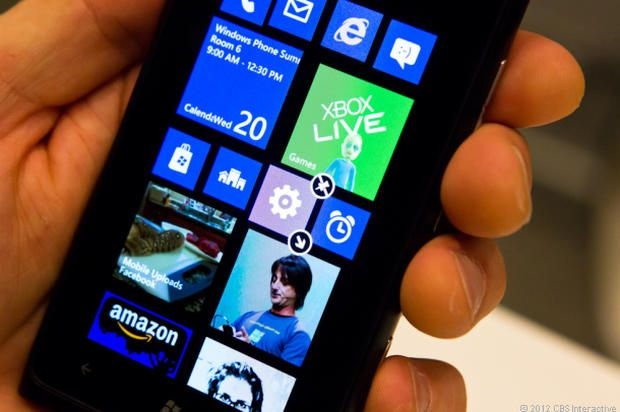
In a platform battle, building on others' platforms is never a winning strategy. Matt Asay explains.
Damned if you do. Damned if you don't.
This might well be Microsoft's mobile mantra, or at least its anguished cry as it tries to find relevance by reportedly making iOS and Android apps run on Windows Mobile ("Project Islandwood" and "Project Astoria," respectively). But it's a losing strategy, as "History tells us that software compatibility is a losers' move," according to Charles Arthur.
Microsoft desperately needs developers, but by essentially admitting that these developers should look elsewhere, it simply confirms its own troubled mobile existence.
Microsoft to world: "We surrender"
It's no secret that Microsoft has struggled in mobile. Despite (or, rather, because of) earlybluster from then-CEO Steve Ballmer (see video below), Microsoft pooh-poohed rising challengers to its erstwhile mobile crown, and now finds itself chasing them.
It was bad enough that Apple beat Microsoft with a premium strategy, but for Google to trounce it with a very Microsoft-esque Android strategy...? That was too much.
So, now Microsoft must play catch up, and the way it's doing so is by inviting Android and iOS apps to run on Windows Mobile. This, however, is not a winning strategy, as The Guardian's Charles Arthur argues:
"The trouble with 'compatibility mode' is that it's so evidently a white flag on the part of the company that enables it. In effect, the company is saying: we can't attract enough developers to write natively for our platform, so we'll try to piggyback on the more successful one.
"But that's also a giant red warning flag to developers on that platform. By effectively telling them that other platforms are more successful, it calls into question the future of the development tools on the platform, and the user base; it accepts that there are both more users and more developers elsewhere."
Developers are the key to the kingdom, and Microsoft is essentially telling them not to bother with Windows. That's not a good sign. In a platform war, it's critical that developers build natively on your platform.
Unless, of course, you're Google.
The Google way
As I've written, Google wins by playing across platforms rather than insisting everything must run on its own. But this is different from what Microsoft is doing.
Microsoft is, at its heart, a platform company, and cares deeply about the operating system, whether that is expressed as Windows or Azure.
Google, for its part, is essentially a cloud services company, monetizing those services through advertising. Google cares about Android because it lowers the bar to more consumers using more internet which, in turn, pays Google an average of $6.30 per user, per year (outside of China).
So, Android is important, but more as a complement to its cash cow.
What to do?
Ultimately, what should Microsoft do?
There are, of course, no easy answers. If there were, Microsoft would already be doing them. It's a good company on its way back to great under CEO Satya Nadella.
Microsoft needs to figure out its own Google way; that is, a way to approach the mobile market that carves out a place where it can be the primary platform, not some third-tier consideration. As Arthur describes, "Far better to move the fight to a new battleground and win there--as Apple did, first with the iPod and then the iPhone and then the iPad and then (thus far) the Apple Watch."
Or as Google has done with advertising.
For Microsoft, this may mean finding clever ways to blend cloud services with mobile interfaces. It has a solid and growing presence in cloud to support this, particularly for enterprise apps.
But this really isn't something for an outsider like me to figure out. Microsoft knows what assets it has, some of which may not be public view. It doesn't need to own the market immediately. It just needs to find a place wherein it can be critically important to developers, and then grow from there.



